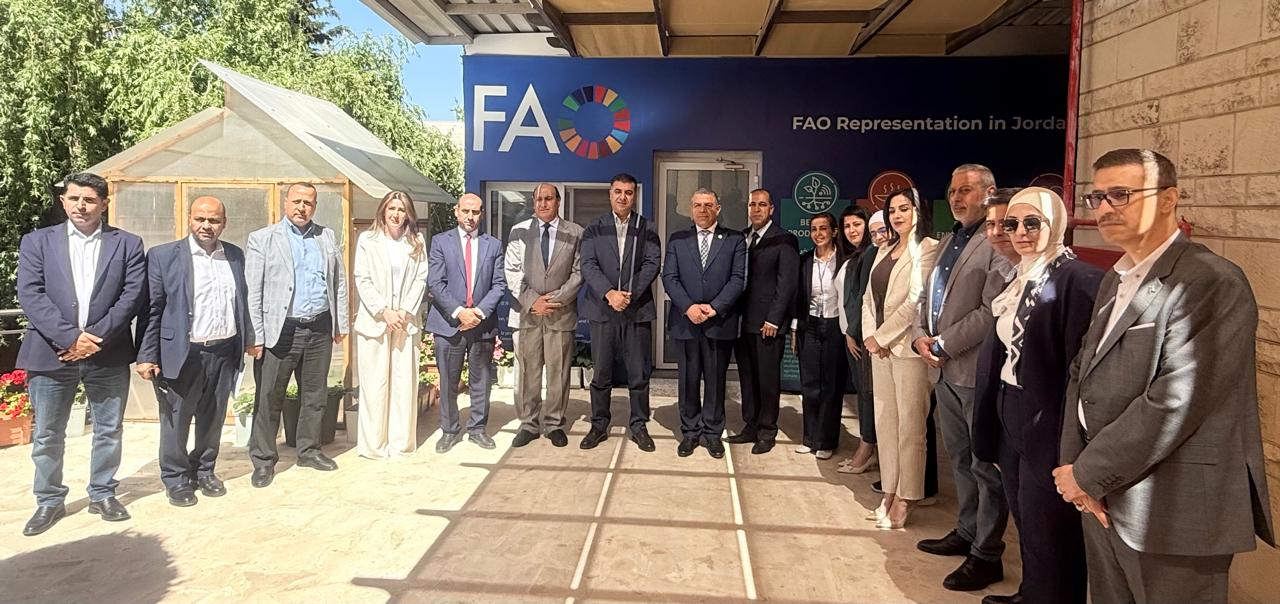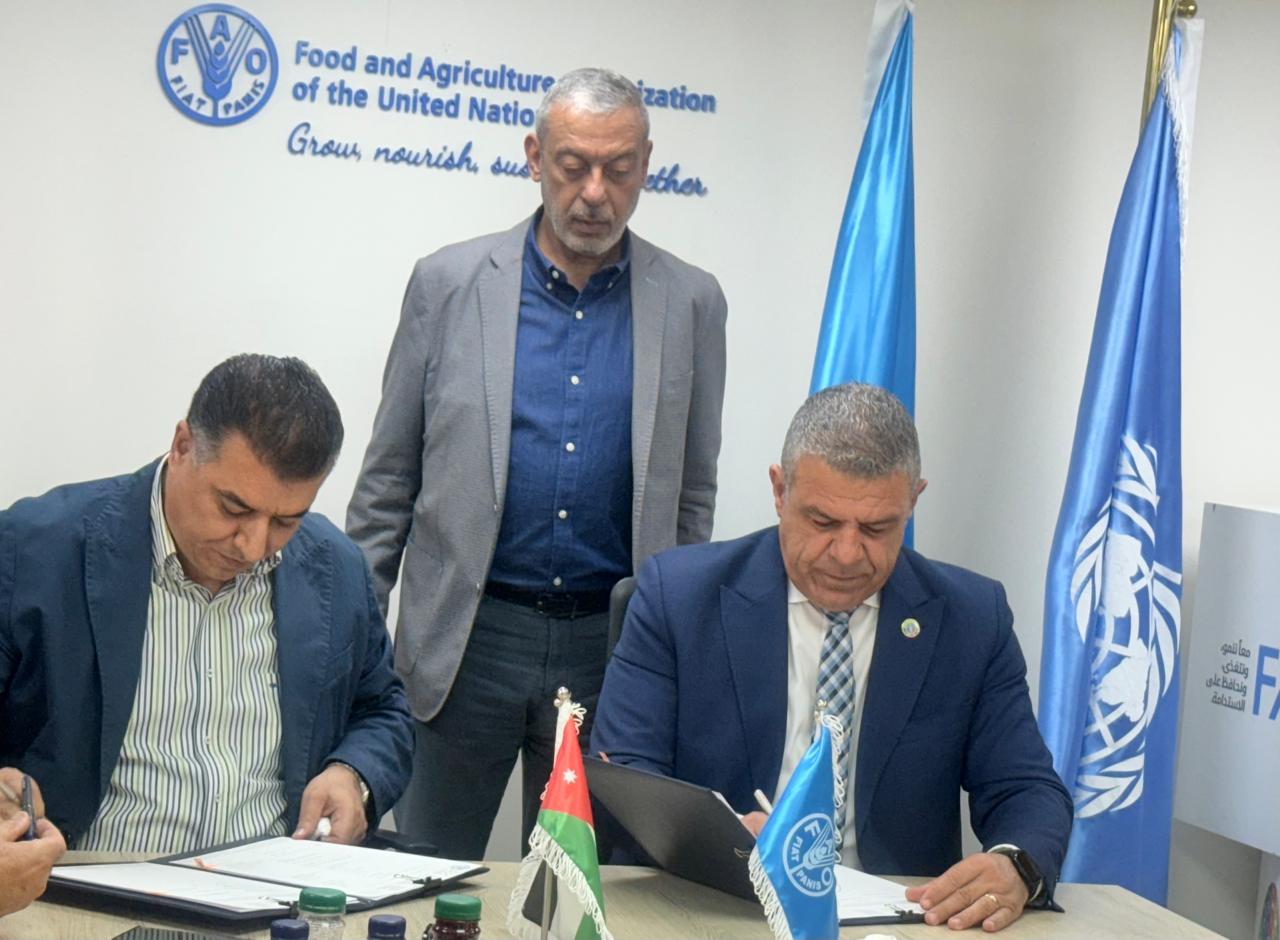FAO and Ministry of Agriculture partner to advance agricultural sustainability and food security

©FAO
In a significant step toward advancing Jordan’s agricultural sector and enhancing food security, the Food and Agriculture Organization of the United Nations (FAO) in Jordan, the Ministry of Agriculture (MoA) and the National Agricultural Research Center (NARC), officially signed two groundbreaking projects in a ceremony attended by the Minister of Agriculture and the Director General of NARC.

This signing marks a crucial commitment to bolstering sustainable agricultural development and improving livelihoods across Jordan. The two projects represent a targeted investment aligned with national priorities for food security and economic resilience.
The first project, “Conservation and Genetic Enhancement of Local Almond Varieties in Jordan for Sustainable Agricultural Development,” focuses on preserving Jordan’s rich agricultural heritage. In collaboration with NARC and research institutions, FAO will undertake the documentation, analysis, and conservation of Jordan’s indigenous almond varieties—particularly those threatened by climate change, agricultural modernization, and limited genetic data. Through genetic and morphological studies, conservation strategies, and the development of new cultivars, this initiative will enhance biodiversity and strengthen resilience within the agricultural sector.
The second project, “Strengthening Jordan’s Agriculture Sector Through Enhanced Capacities and Market Access,” aims to improve food security and rural livelihoods by supporting farmers with sustainable farming practices, boosting productivity, and expanding market access. This project will provide farmers with essential tools and training, foster public-private dialogue, and create enhanced market entry opportunities, including Agri-fairs. It directly responds to key national challenges such as water scarcity, unemployment, and global economic pressures, reinforcing the Jordanian government and Royal vision for enhanced food security.
As part of the event, the Minister of Agriculture and FAO Representative also signed an additional agreement to enhance farmers’ skills and capacities through climate smart agricultural practices to cope with climate change impact in the targeted governorates of Madaba, Karak, Tafileh and Ma'an. Under this agreement, 16 farmer field schools will be established, while necessary equipment will be identified for an additional schools to be established later, aiming to improve the farmers’ adaptation to climate change. This agreement falls under the "Building Resilience to Cope with Climate Change in Jordan through Improving Water Use Efficiency in the Agriculture Sector (BRCCJ)" project, funded by the Green Climate Fund (GCF) and implemented by FAO in collaboration with key partners—the Ministry of Agriculture, Ministry of Water and Irrigation, Ministry of Environment, and the United Nations Development Programme (UNDP).
During the signing ceremony, H.E Eng. Khaled Hnaifat, the Minister of Agriculture emphasized the importance of these initiatives in strengthening Jordan’s agricultural sector, noting that the projects will help farmers, researchers, and institutions adopt innovative and sustainable approaches to food production and distribution.
The Director General of NARC, Dr. Ibrahim Al-Rawashdeh, valued FAO's trust in NARC, through the active partnership in the project for the conservation of local almond varieties. This project is considered one of the first research projects that the National Seed Bank will implement after its inauguration, which was honored by the high royal patronage and is considered one of the projects of the Economic Modernization Vision and the National Sustainable Development Plan implemented by the Jordanian Ministry of Agriculture."
FAO Representative in Jordan, Eng. Nabil Assaf, highlighted the organization’s dedication to empowering Jordanian farmers with the tools and knowledge to adapt to climate challenges. He stated, “These agreements reflect FAO’s strong commitment to supporting Jordan’s agricultural sector with sustainable solutions that enhance resilience and productivity. By working together, we can help farmers adopt climate-smart practices, conserve essential resources, and secure a stable food future for Jordan.”
FAO and the Ministry of Agriculture expressed their dedication to fostering strong partnerships and collaboration, ensuring that these projects pave the way for a more resilient and prosperous agricultural future in Jordan
